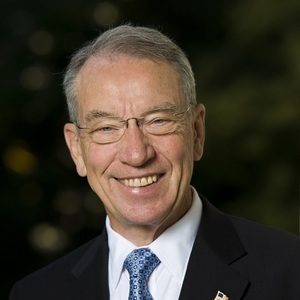EPA provides data on 2016, 2017 RFS waivers in letter to Grassley

July 13, 2018
BY Erin Krueger
The U.S. EPA has issued a letter to Sen. Chuck Grassley, R-Iowa, confirming it granted 19 out of 20 small refinery hardship waivers under the Renewable Fuel Standard for compliance year 2016. An additional 29 of 33 petitions have also been granted for 2017, with the remaining four still pending.
The letter, dated July 12, was sent to Grassley in response to a bipartisan inquiry several senators sent to the agency in April requesting the EPA stop issuing small refinery waivers and disclose to Congress information on the waivers that have already been granted.
In his letter to Grassley, Assistant EPA Administrator William Wehrum cites Section 211(o)(9) of the Clean Air Act, which authorizes the EPA to temporarily exempt small refineries from their renewable fuel volume obligations under the RFS program on the basis of a finding of “disproportionate economic hardship.” Wehrum said “the statute directs EPA, in consultation with the Department of Energy (DOE), to consider the DOE Small Refinery Study and ‘other economic factors’ in evaluating small refinery exemption petitions.”
Advertisement
Advertisement
“Over the past several years, working in close consultation with DOE, EPA has implemented the SRE provisions of the CAA,” Wehrum continued. “We appreciate that the SREs granted over the past several months have been the focus of many stakeholders’ attention, but we are required by statute to implement these provisions and we will continue to manage the program consistent with the law.”
In their April letter, the senators asked the EPA to provide information related to the refineries that were granted hardship waivers in 2016, 2017 and 2018. In his response, Wehrum said the “EPA is unable to provide information that is fully responsive to your request as we treat both the names of individual petitioners and EPA’s decision on those petitions at Confidential Business Information, pending a final CBI determination by EPA’s Office of General Counsel.”
Wehrum does, however, provide basic data on the waivers that were approved.
For 2016, he said the EPA received 20 petitions, and granted exemptions for 19 of them. The total exempted renewable volume obligation (RVO) was 790 million renewable identification numbers (RINs).
Advertisement
Advertisement
For 2017, the agency received 33 petitions. To date 29 have been approved. The EPA is still processing the remaining four petitions. The 29 petitions that have been approved to date resulted in a total exempted RVO of 1.46 billion RINs.
For 2018, the EPA said it has not yet received any petitions.
Grassley criticized the EPA for failing to disclose names of the waiver recipients. “The idea that disclosing to Congress the names of waiver recipients somehow reveals confidential business information doesn’t make any sense and isn’t acceptable,” he said. “Providing Congress with the names of recipients wouldn’t reveal any details about their operations or finances. It’s a necessary first step to making sure the law is being followed. We already know many of the companies that have received so-called hardship waivers through news reports, likely because many of the companies have a financial interest in making that information public or have an obligation to their shareholders to do so. I appreciate finally receiving a response within days of acting Administrator Wheeler taking the reins at EPA, but this nonanswer is disappointing.
“EPA’s acknowledgment that only one waiver applicant has been denied in the past couple years raises questions about the legitimacy of the process,” Grassley continued. “The agency seems to be using a rubber stamp to help Big Oil skirt the law. EPA’s implementation of the Renewable Fuel Standard law isn’t above congressional oversight. No government agency and no law is. I plan on discussing this issue soon with acting Administrator Wheeler, and I hope EPA is more forthcoming under his leadership than his predecessor’s.”
Related Stories
The U.S. EPA on July 8 hosted virtual public hearing to gather input on the agency’s recently released proposed rule to set 2026 and 2027 RFS RVOs. Members of the biofuel industry were among those to offer testimony during the event.
The USDA’s Risk Management Agency is implementing multiple changes to the Camelina pilot insurance program for the 2026 and succeeding crop years. The changes will expand coverage options and provide greater flexibility for producers.
President Trump on July 4 signed the “One Big Beautiful Bill Act.” The legislation extends and updates the 45Z credit and revives a tax credit benefiting small biodiesel producers but repeals several other bioenergy-related tax incentives.
CARB on June 27 announced amendments to the state’s LCFS regulations will take effect beginning on July 1. The amended regulations were approved by the agency in November 2024, but implementation was delayed due to regulatory clarity issues.
SAF Magazine and the Commercial Aviation Alternative Fuels Initiative announced the preliminary agenda for the North American SAF Conference and Expo, being held Sept. 22-24 at the Minneapolis Convention Center in Minneapolis, Minnesota.
Upcoming Events










